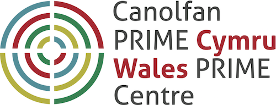 Title
Title
TIME: Take home naloxone Intervention Multi centre Emergency setting feasibility trial
Contact details
Matthew Jones – m.b.jones@swansea.ac.uk
Jenna Jones – j.k.bulger@swansea.ac.uk
Principal / Lead investigator
Helen Snooks (PRIME, Swansea University)
Co-investigators / research team
Steve Goodacre, Jonathan Benger, Chris Moore, Sarah Black, Simon Dixon, Penny Buykx, Bridie Evans, Rossana Oretti, Matthew Jones, Ann John, Adrian Edwards, Emma Parry, Rebecca Hoskins, Barbara Lawrence, Alan Watkins
Type of study
Interventional (Cluster RCT)
Summary
People who take opioid drugs such as heroin can overdose. The number of people who die this way is increasing; which has tragic consequences for families, friends and communities. Naloxone is a drug that can reverse the effects of opioid overdose. Emergency ambulance staff and doctors in the Emergency Department regularly administer naloxone. But some people die before they reach emergency medical services.
There are schemes in the UK and internationally where naloxone is given to drug users to administer to others in an emergency. This is called ‘Take Home Naloxone’ (THN). But we don’t know whether THN saves lives. There are some concerns that it could encourage risk-taking behaviour i.e. the drug user feeling that they have a “safety net” and can take a higher dose.
We will carry out an initial study to see:
- whether it is possible for ambulance paramedics and Emergency Department staff to give out THN kits to drug users they see, and;
- if we can collect data about this new way of distributing naloxone to find out whether it reduces deaths from overdose. We will include people who have overdosed and drug users who present with other drug-related problems such as an abscess. Because we know that drug users may share THN kits, we are aiming to reach as many drug users as possible in our follow up.
We will carry out this study in two areas where THN will be given to patients who have overdosed or who are at risk of overdose (Emergency Department and the ambulance paramedics who serve that hospital) and two other areas where THN kits are not given out.
We recently carried out a study with emergency ambulances in Cardiff so we know that paramedics will give out THN and that about half of suitable patients who had recovered from an overdose accepted a kit. We found that it is very difficult to follow up these patients because they don’t respond to phone calls or may have no fixed address. Therefore, in this study we will follow what happens to patients using the routine information which health services already collect about everyone they see.
We will collect information about deaths, overdoses, emergency ambulance calls and emergency department attendances and admissions up to 1 year after patients are seen. We will compare these figures between the area which gives out THN and the areas which do not. To find out about the experiences and views of patients receiving THN and staff who give out the kits, we will carry out interviews.
If this feasibility study shows it is possible to give out THN kits through emergency services, and that we can collect data about effects, we will plan a larger trial of THN in emergency settings to find out whether it reduces deaths.
Lay involvement
We have talked to family members affected by drug overdose and to services which help drug users and give out THN. We have also talked to a group of NHS patients who are involved in research about emergency care. They all believe this research is needed. Two people with personal experience of THN are part of our research team alongside researchers and specialists in emergency medicine, addiction, general practice, and public health. We have consulted national specialist groups and gained support from potential sites.
Two public members sit on our trial steering committee.
How could this research potentially benefit patients?
As this is a feasibility study, we will not be able to ascertain at this stage whether the provision of THN kits in emergency settings will reduce deaths from opioid overdose. If this study progresses to a fully-powered trial, we will answer questions about whether ambulance services and emergency departments distributing THN kits to people at risk of opioid overdose is safe, clinically and cost effective.
Who is the study sponsor?
Swansea University
Does the study involve a methodological innovation?
Novel data collection methods – follow up a cohort anonymously using an algorithm to define the population.
Does the study involve commercial partnership activity?
No
Funder
NIHR HS&DR
Total grant value
£563,735
Start date
01/03/2018
End date
01/11/2020
Further information (e.g. related web link)
Study summary on ISRCTN registry: http://www.isrctn.com/ISRCTN13232859
Outputs generated (Reports / Publications / Impact)
Poster presentation: Jones M, Snooks H, Bulger J, et al PP24 Time: take-home naloxone in multicentre emergency settings: protocol for a feasibility study. Emergency Medicine Journal 2019;36:e10.
Impact
As this is a feasibility study, we will not be able to ascertain at this stage whether the provision of THN kits in emergency settings will reduce deaths from opioid overdose. If this study progresses to a fully-powered trial, we will answer questions about whether ambulance services and emergency departments distributing THN kits to people at risk of opioid overdose is safe, clinically and cost effective.

